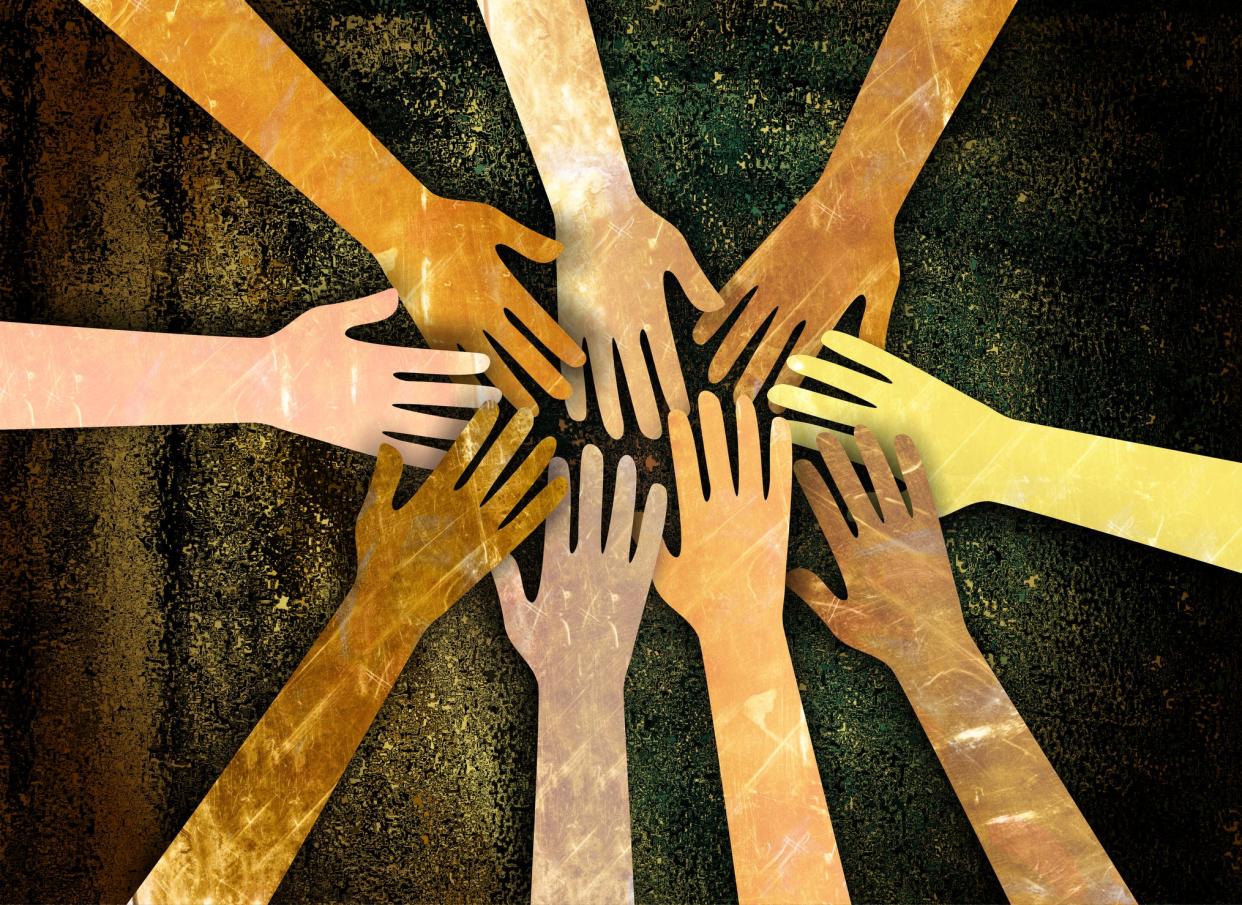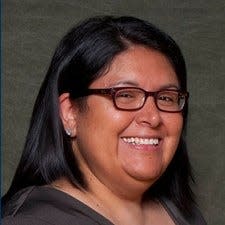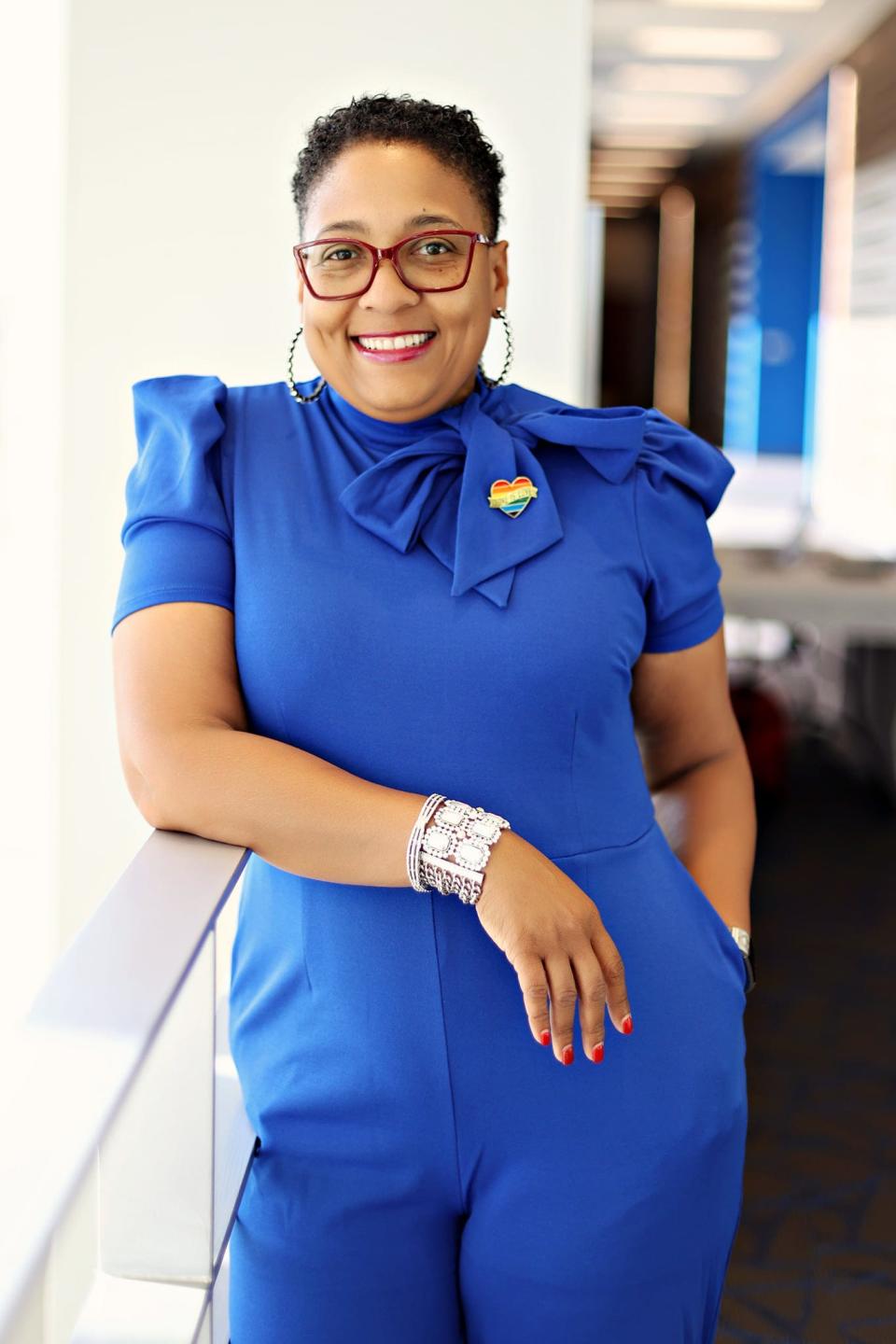Guest column: Mentorships to credit for success among first-gen achievements

A young girl, her four sisters and her two brothers were born in the United States to an undocumented Mexican father and a Mexican mother who was raised in Mexico — parents who met each other as agricultural migrant workers in Texas. This girl and her six siblings entered the U.S. public school system not speaking or understanding any English, from a highly impoverished household with no extended family in the country. Based on long-term research data, these children’s demographics would forecast limited success in K-12 education; a low likelihood of attending college; and an even worse probability of graduating with a college degree.
Today, all seven of these children have attended college; five have a bachelor’s degree; four have a master’s degree; one is working on a doctoral degree; and the oldest has earned a Ph.D., worked as a university faculty member, and now works as an executive administrator in higher education. All seven children hold well-paying professional positions today. How did these children beat the significant odds stacked against them?
In another case, a young African American girl was born to college-educated, hard-working, middle-class African American parents who modeled the importance of giving back to her community, even in the face of racism and stereotypes that pervaded their daily experiences. She attended a small private-elementary school academy; an all-Black public middle and high school; and graduated from a Catholic high school. She completed bachelor’s and master’s degrees at a public research university and pursued a career in higher education, beginning as an academic adviser; moving into a tenured faculty position; and working up through administrative positions to her current role as an executive director for her institution. During her professional ascent, she's also been a mother and foster parent, while completing her doctorate degree through a small, private Methodist college. How was she able to navigate through so much to the success she has today?
Both of these accounts owe much credit to the children’s families’ emphasis on the value of education and their hard work to provide for their essentials. Yet a key factor in explaining how far both have come to where they are today — professionally, socially and economically — is the MENTORSHIP that they have received throughout their lifetimes. How do we, the authors of this piece, know about the importance of mentorship in these two stories? Because these are our own stories, shared to personify the many ways that we all can change people’s lives every day.
In the first account, one of us, Dr. Juanita Ortiz, and her siblings had public-school teachers, church members, and community members who mentored them at every turn. These adults used their personal time to feed the children, not only physically but emotionally, as well, by encouraging them all to dream big. They opened doors for these children’s growth by personally paying for academic supplies and experiences when family finances would have otherwise limited such possibilities; by guiding them and their parents through unfamiliar educational requirements; and by sharing the need for college and guiding them through the ACT, college admission, and scholarships.
In the second account, the other, Dr. Monique Bruner, also had key individuals throughout her youth to mentor her to reach her full potential while helping others. Dr. Bruner had mentors at school and in her community who consistently pushed her past others’ stereotypes of what she was capable of and where she belonged. They pushed her to aim high, and they supported such empowering messages by helping her to develop valuable knowledge and skills, while also sharing important learning opportunities with her.
As adults, both of us also benefited from new mentors in the form of faculty, staff and leaders from numerous fields, who all took an interest in sharing their knowledge, expertise and networks with the emerging professionals. These mentors made time to guide us through the importance of workplace cultures and norms; the need for continued professional development; and the possibility of pushing ourselves to the top levels of our institutions.
Mentors also understood and emphasized the significance of our ascension through higher education roles and leadership, in order to use our positions of input to advocate for consideration and inclusion of diverse needs and experiences. Additionally, we are visible to other women, racial/ethnic minorities, and socioeconomically disadvantaged young people and community members that achievement is possible for us all, and that we are always here to support their journeys, too.
We want to bring appreciation for and awareness of the positive and significant impacts that we can all have on others’ lives, when we make time to serve as mentors. Thank you to the mentors who pave the way for so many others daily.


Dr. Juanita Ortiz is a first-generation graduate and higher education administrator. Dr. Monique Bruner is a lifelong educator and higher education administrator.
This article originally appeared on Oklahoman: Guests: Mentorships to credit for success among first-gen achievements

